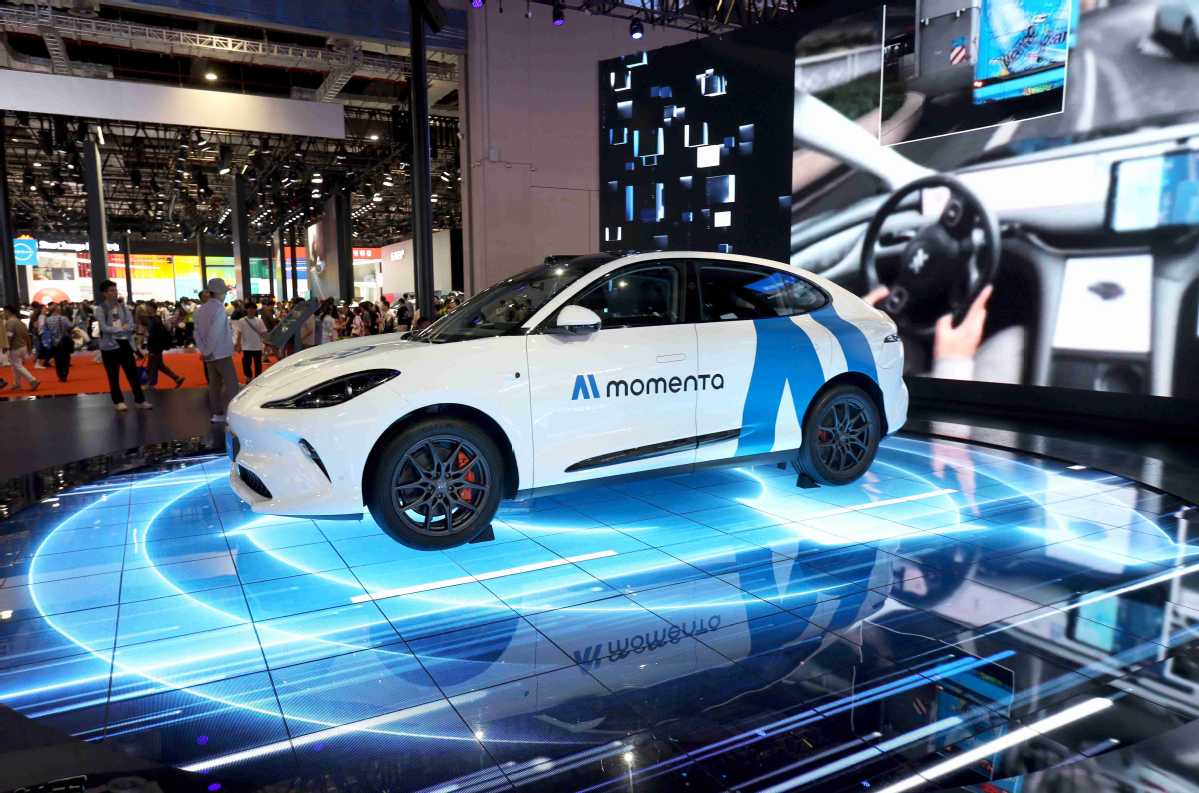Momenta gears up to expand overseas


Autonomous driving firm Momenta is stepping up its push to go global, as intelligent transportation solutions offered by Chinese companies turn pivotal for global automakers navigating the industry's shift toward smart driving, its chief executive said.
Through deep collaborations with overseas automotive companies, Chinese smart driving companies are not only introducing advanced technologies to more countries and regions, but are also refining their offerings through localization and customized solutions, Cao Xudong, CEO of Momenta, said in an interview with China Daily.
"This global deployment allows Chinese firms to apply their technological advantages across diverse scenarios, simultaneously driving technological upgrades and standardization within the global automotive industry," Cao said.
Momenta stands as an example of this successful expansion. The company has demonstrated impressive growth in the number of vehicle models it has partnered on.
To date, Momenta's intelligent driving solutions have been selected for over 160 vehicle models, partnering with many leading global automakers such as BMW, Mercedes-Benz, Audi, Volkswagen, Toyota, Honda, Nissan and General Motors.
"It takes five to seven years to win the trust of major foreign carmakers," Cao said, referring to the stringent, multiphase validation process employed by multinational car companies. This process, encompassing technical module verification, prototype testing, and final mass production solution implementation, involves extremely rigorous standards, particularly for functional safety.
This international recognition, Cao noted, is built upon years of honing their skills in the demanding domestic market. Successfully serving major local automakers like SAIC and GAC, while tackling China's complex road conditions and massive data streams, has provided a solid foundation for subsequently meeting international standards.
Feng Xingya, chairman of GAC, said: "Safety is the bottom line for auto enterprises, and this bottom line cannot be compromised. In the next three to five years, I believe we are likely to witness a tipping point for rapid growth in the development of autonomous and intelligent vehicles."
Xin Guobin, vice-minister of industry and information technology, said at the 2025 World Intelligent Connected Vehicles Conference, which concluded in Beijing last week, that his ministry will formulate a new development plan for the upcoming 15th Five-Year Plan period (2026-30), covering intelligent connected and new energy vehicles.
"We will support technological innovation, promote the deep integration of artificial intelligence and the automotive industry, and accelerate breakthroughs in next-generation architectures and high-performance chips," Xin said. "We will also push forward standard-setting for combined driver-assist and autonomous driving systems, improve vehicle production access and regulate market competition."
China has already built a comprehensive ecosystem spanning smart cockpits, autonomous driving, and cloud connectivity, with more than 60 percent of new passenger cars now equipped with combined driver-assist functions.
"More efforts will be made to accelerate breakthroughs in high-level autonomous driving technologies," Xin said.
Companies are moving fast in this direction.
Momenta, for instance, champions a mass production-oriented approach, diverging from traditional Robotaxi companies that rely on costly retrofitted vehicles, sensors, and computing power, Cao said.
According to him, this involves leveraging mass production sensors to gather vast amounts of data to identify high-level autonomous driving cases, and utilizing mass production chips to reduce the cost of large-scale deployment.
Cao expressed confidence that Momenta holds a first-mover advantage and rapid scaling speed. "Among industry suppliers, we are likely to be the earliest enterprise to reach a scale of tens of millions of units."




































